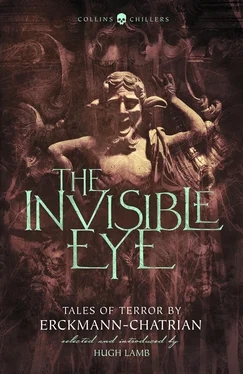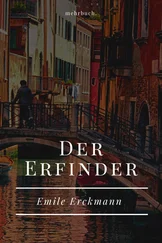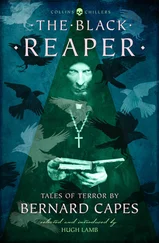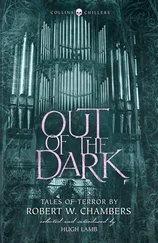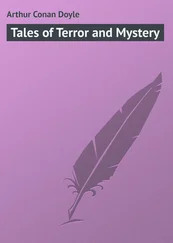‘Hippel,’ said I to my comrade, ‘it is time to be off if we wish to take advantage of the cool morning.’
‘Very true,’ said he, ‘but before we go I must have a mouthful of something.’
We went downstairs; the landlord was dressing himself; when he had put his blouse on he set before us the relics of our last night’s supper; he filled one of my flasks with white wine, the other with red, saddled our hacks, and wished us a good journey.
We had not ridden more than half a league when my friend Hippel, who was always thirsty, took a draught of the red wine.
‘P-r-r-r!’ cried he, as if he was going to faint, ‘my dream – my last night’s dream!’
He pushed his horse into a trot to escape this vision, which was visibly imprinted in striking characters on his face; I followed him slowly, as my poor Rosinante required some consideration.
The sun rose, a pale pink tinge invaded the gloomy blue of the sky, then the stars lost themselves as the light became brighter. As the first rays of the sun showed themselves, Hippel stopped his horse and waited for me.
‘I cannot tell you,’ said he, ‘what gloomy ideas have taken possession of me. This red wine must have some strange properties; it pleases my palate, but it certainly attacks my brain.’
‘Hippel,’ replied I, ‘it is not to be disputed that certain liquors contain the principles of fancy and even of phantasmagoria. I have seen men from gay become sad, and the reverse; men of sense become silly, and the silly become witty, and all arising from a glass or two of wine in the stomach. It is a profound mystery; what man, then, is senseless enough to deny the bottle’s magic power? Is it not the sceptre of a superior incomprehensible force before which we must be content to bow the head, for we all some time or other submit to its influence, divine or infernal, as the case may be?’
Hippel recognised the force of my arguments and remained silently lost in reverie. We were making our way along a narrow path which winds along the banks of the Queich. We could hear the birds chirping, and the partridge calling as it hid itself under the broad vine-leaves. The landscape was superb, the river murmured as it flowed past little ravines in the banks. Right and left, hillside after hillside came into view, all loaded with abundant fruit. Our route formed an angle with the declivity. All at once my friend Hippel stopped motionless, his mouth wide open, his hands extended in an attitude of stupefied astonishment, then as quick as lightning he turned to fly, when I seized his horse’s bridle.
‘Hippel, what’s the matter? Is Satan in ambuscade on the road, or has Balaam’s angel drawn his sword against you?’
‘Let me go!’ said he, struggling; ‘my dream – my dream!’
‘Be quiet and calm yourself, Hippel; no doubt there are some injurious qualities contained in red wine; swallow some of this; it is a generous juice of the grape which dissipates the gloomy imaginings of a man’s brain.’
He drank it eagerly, and this beneficent liquor re-established his faculties in equilibrium.
He poured the red wine out on the road; it had become as black as ink, and formed great bubbles as it soaked in the ground, and I seemed to hear confused voices groaning and sighing, but so faint that they seemed to escape from some distant country, and which the ear of flesh could hardly hear, but only the fibres of the heart could feel. It was as Abel’s last sigh when his brother felled him to the ground and the earth drank up his blood.
Hippel was too much excited to pay attention to this phenomenon, but I was profoundly struck by it. At the same time I noticed a black bird, about as large as my fist, rise from the bushes near, and fly away with a cry of fear.
‘I feel,’ said Hippel, ‘that the opposing principles are struggling within me, one white and the other black, the principles of good and evil; come on.’
We continued our journey.
‘Ludwig,’ my comrade soon began, ‘such extraordinary things happen in this world that our understandings ought to humiliate themselves in fear and trembling. You know I have never been here before. Well, yesterday I dreamt, and today I see with open eyes the dream of last night rise again before me; look at that landscape – it is the same I beheld when asleep. Here are the ruins of the old château where I was struck down in a fit of apoplexy; this is the path I went along, and there are my four acres of vines. There is not a tree, not a streamlet, not a bush which I cannot recognise as if I had seen them hundreds of times before. When we turn the angle of the road we shall see the village of Welcke at the end of the valley; the second house on the right is the burgomaster’s; it has five windows on the first floor and four below, and the door. On the left of my house – I mean the burgomaster’s – you see a barn and a stable. It is there my cattle are kept. Behind the house is the yard; under a large shed is a two-horse wine-press. So, my dear Ludwig, such as I am you see me resuscitated. The poor burgomaster is looking at you out of my eyes; he speaks to you by my voice, and did I not recollect that before being a burgomaster and a rich sordid proprietor I have been Hippel the bon vivant , I should hesitate to say who I am, for all I see recalls another existence, other habits and other ideas.’
Everything was in accordance with what Hippel had described. We saw the village at some distance down in a fertile valley between hillsides covered with vines, houses scattered along the banks of the river; the second on the right was the burgomaster’s.
And Hippel had a vague recollection of every one we met; some seemed so well known to him that he was on the point of addressing them by name; but the words died away on his lips, and he could not disengage his ideas. Besides, when he noticed the look of indifferent curiosity with which those we met regarded us, Hippel felt he was entirely unknown, and that his face, at all events, sufficed to mask the spirit of the defunct burgomaster.
We dismounted at an inn which my friend assured me was the best in the village; he had known it long by reputation.
A second surprise. The mistress of the inn was a fat gossip, a widow of many years’ standing, and whom the defunct burgomaster had once proposed to make his second wife.
Hippel felt inclined to clasp her in his arms; all his old sympathies awoke in him at once. However, he succeeded in moderating his transports; the real Hippel combated in him the burgomaster’s matrimonial inclinations. So he contented himself with asking her as civilly as possible for a good breakfast and the best wine she had.
While we were at table, a very natural curiosity prompted Hippel to inquire what had passed in the village since his death.
‘Madame,’ said he with a flattering smile, ‘you were doubtless well acquainted with the late burgomaster of Welcke?’
‘Do you mean the one that died in a fit of apoplexy about three years ago?’ said she.
‘The same,’ replied my comrade, looking inquisitively at her.
‘Ah, yes, indeed, I knew him!’ cried the hostess; ‘that old curmudgeon wanted to marry me. If I had known he would have died so soon I would have accepted him. He proposed we should mutually settle all our property on the survivor.’
My dear Hippel was rather disconcerted at this reply; the burgomaster’s amour propre in him was horribly ruffled. He nevertheless continued his questions.
‘So you were not the least bit in love with him, madame?’ he asked.
‘How was it possible to love a man as ugly, dirty, repulsive, and avaricious as he was?’
Hippel got up and walked to the looking-glass to survey himself. After contemplating his fat and rosy cheeks he smiled contentedly, and sat down before a chicken, which he proceeded to carve.
Читать дальше
